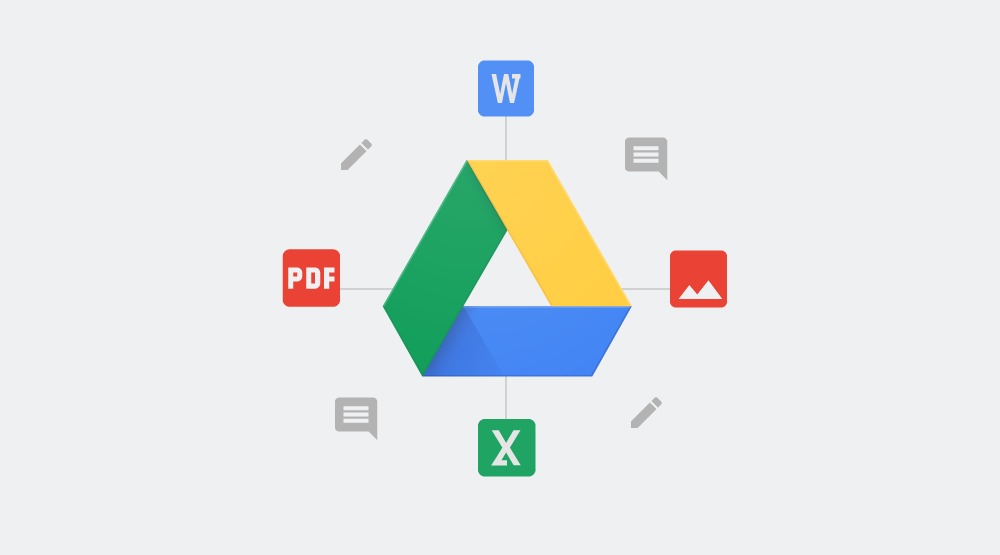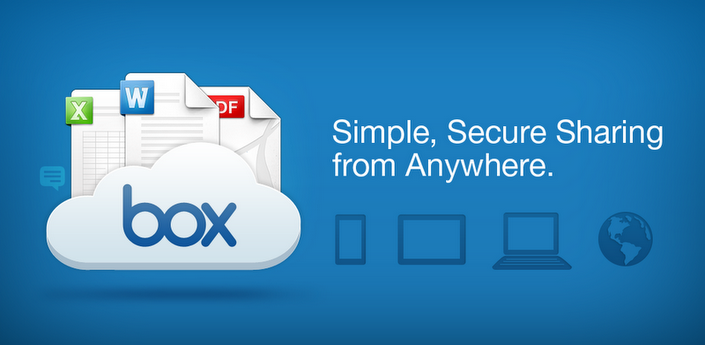Cloud storage is no longer the future. It is now a part of our daily life. With the cloud, there are no more worries about losing your important documents or not having access to them when you need them. For some, the best cloud storage is the one with the biggest capacity. For others, it can be the most secure. Some prefer services which provide features beyond keeping their files.
Here are the best cloud storage services you can get right now.
Google Drive
- 15 GB (Free)
- 100 GB ($1.99/Month)
- 1 TB ($9.99/Month)
- 10 TB ($99.99/Month)
If you have a Google account, then this service is already available to you. Google Drive is convenient to use since it is linked with other Google apps. The integration with Google Docs and Google Sheets makes it a great collaboration tool. It also has great sharing capabilities. The two-factor authentication makes sure that your files stay secure.
On top of all these features, that 15 GB base storage is huge. If you are using this for your school documents, you would most likely not use that all up. Nevertheless, you can pay to get more storage. An alternative to this is Office 365. Learn more about G suite IMAP Migration to Office 365.
From our partners:
Microsoft OneDrive
- 5 GB (Free)
- 50 GB ($1.99/Month)
- 1 TB ($69.99/Year or $6.99/Month)
- 6 TB ($99.99/Year or $9.99/Month)
For Windows users, this is the one for you. OneDrive has a friendly user interface. Of course, it is well-integrated with Windows 10. However, it is also compatible with iOS, Mac, and Android. Its integration with Office 365 makes it great for managing your files and collaborating with others. Learn more about Office 365 Migration and SharePoint Migration.
iCloud
- 5 GB (Free)
- 50 GB ($0.99/month)
- 200 GB ($2.99/month)
- 2 TB ($9.99/month)
For those using Apple products, iCloud is one option by default. It is seamlessly integrated with all your Apple devices, getting access to your files is easy and seamless. Backups and syncs are all done easily. All your files, from your pictures, messages, contacts, music, notes, etc. are all taken care of. There are some editing capabilities you can also take advantage of. Perhaps the only downside though is it is only available for Apple users and only comes with 5GB for a free account. It can easily get used up especially if you take a lot of pictures in your iPhone and sync them in iCloud.
pCloud
- 10 GB (Free)
- 500 GB ($3.99/month)
- 2 TB ($7.99/month)
What makes pCloud tick is the Rewind system feature. This enables users to retrieve lost files due to viruses, system errors, or corruption. It does this by storing five copies of your files into three different data servers.
It is highly secure. It has fast and reliable data synchronization speeds. Its app is also easy to use. pCloud is compatible with a wide array of digital platforms. It is available in Linux, Windows, Mac, and Android. By getting a plan, you get more security options and features. As is, there are no productivity and collaboration tools in pCloud.
Mega
- 50 GB (Free)
- 200 GB ($4.99)
- 500 GB ($9.99)
- 2 TB ($19.99)
- 4 TB ($29.99)
For those who are all about security, Mega is for you. Its end-to-end encryption capabilities will make sure that your files will not be accessed by others. Not even Mega.
With Mega, you initially get a massive 50 GB. This will lower down to 15 GB after a month. You can keep the 50 GB capacity by participating in their achievements program.
Dropbox
- 2 GB (Free)
- 2 TB ($11.99 / month)
- 3 TB ($19.99 / month)
Dropbox is one of the popular products that come up whenever cloud storage is mentioned. It is also extremely easy to use. File synchronization is quick. Its integration with Microsoft Office ensures that all your documents are stored and up-to-date.
A great feature of Dropbox is File Versioning. This allows a file to exist in multiple versions at the same time. This is handy if you need to access older versions of your documents. The 2 GB free tier is a bit small compared to other services. It can easily get used up especially if you have lots of multimedia files you use in school. If you aren’t purchasing a plan, Dropbox is only ideal for storing small files you need quick access to.
iDrive
- 5GB (Free)
- 2TB for iDrive Personal ($69.50/year)
- 5TB for iDrive Personal ($99.60/year)
iDrive is another option for those who want extra security with their 256-bit AES military-grade encryption. A great feature of iDrive is the continuous back-up option. This recognizes changes you made in your files. Then, they update your files in the cloud near real-time.
Box
- 10 GB Individual Plan – 250 MB File upload limit (Free)
- 100 GB Personal Pro Plan – 5GB File upload (US$11.50/month)
Box is another good choice for cloud storage. It is often compared with Dropbox though Box seems to lean more on the side of business users. Box provides a very easy to use interface. It has built-in support for editing Google Docs or Microsoft Office files and syncing them. With Box, you can also control privacy and visibility of files to certain users. It also performs well even if wifi speed is not ideal.
The 10GB free tier provides enough space for you to store your multimedia files. The only downside though is the 250MB file upload limit for the free tier. Some of the features also like Salesforce and NetSuite integration may not be relevant to student users.








/cdn.vox-cdn.com/uploads/chorus_image/image/64115506/Microsoft_OneDrive.5.jpg)
:max_bytes(150000):strip_icc()/icloud-logo-581b32425f9b581c0bb7281c.jpg)











